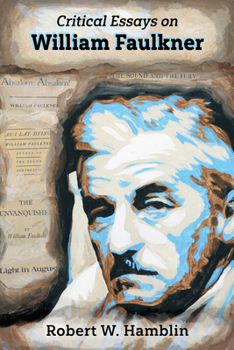Critical Essays on William Faulkner
Select Format
Select Condition 
Book Overview
Critical Essays on William Faulkner compiles scholarship by noted Faulkner studies scholar Robert W. Hamblin. Ranging from 1980 to 2020, the twenty-one essays present a variety of approaches to Faulkner's work. While acknowledging Faulkner as the quintessential southern writer--particularly in his treatment of race--the essays examine his work in relation to American and even international contexts. The volume includes discussions of Faulkner's techniques and the psychological underpinnings of both the origin and the form of his art; explores how his writing is a means of "saying 'no' to death"; examines the intertextual linkages of his fiction with that of other writers like Shakespeare, Twain, Steinbeck, Warren, and Salinger; treats Faulkner's use of myth and his fondness for the initiation motif; and argues that Faulkner's film work in Hollywood is much better and of far greater value than most scholars have acknowledged. Taken as a whole, Hamblin's essays suggest that Faulkner's overarching themes relate to time and consequent change. The history of Faulkner's Yoknapatawpha stretches from the arrival of the white settlers on the Mississippi frontier in the early 1800s to the beginnings of the civil rights movement in the 1940s. Caught in this world of continual change that produces a great degree of uncertainty and ambivalence, the Faulkner character (and reader) must weigh the traditions of the past with the demands of the present and the future. As Faulkner acknowledges, this process of discovery and growth is a difficult and sometimes painful one; yet, as Hamblin attests, to engage in that quest is to realize the very essence of what it means to be human.
Format:Paperback
Language:English
ISBN:1496841131
ISBN13:9781496841131
Release Date:August 2022
Publisher:University Press of Mississippi
Length:338 Pages
Weight:1.15 lbs.
Dimensions:0.8" x 6.1" x 9.2"
Customer Reviews
0 rating





